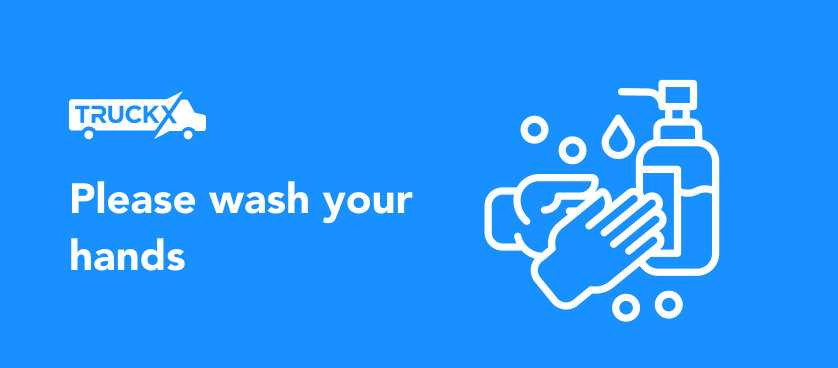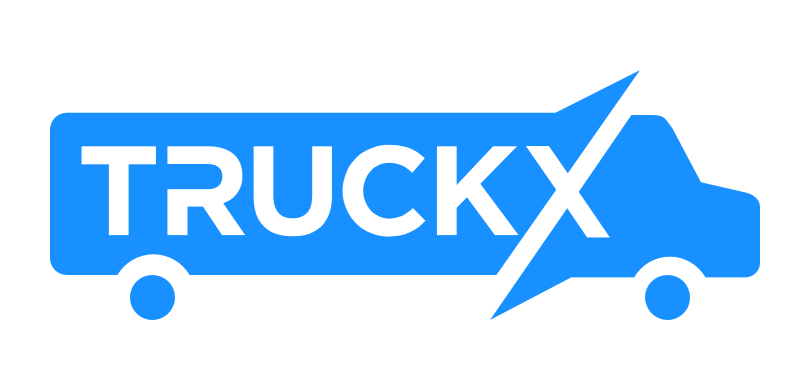
The coronavirus outbreak has shaken everyone. By many estimates, public health could be in jeopardy, businesses have started suffering, and the entire situation is turning confusing If you’re in the trucking industry, you may be on the frontlines in more ways than one. In that scenario, you may already be taking calculated risks to run the business, on which so many citizens, as well as other industries, depend.
It’s true that we consume more than we produce in the US. It’s also true that most of our imports originate in China and other Asian countries. Even assuming the outbreak is contained on our shores, we’ll be in a fix if the difficulties in the supply chain aren’t resolved soon. Not only will the industry suffer from the virus but also the people on the frontlines, i.e. the truckers.
Amazon has already advised its contract carriers to ask the truckers, who feel sick and feverish, to remain indoors until the fever subsides. They’ve also been asked to disinfect steering wheels after use and to keep washing their hands to prevent getting infected.
Staying informed is the clearest thing you’ll do to contain the virus and protect yourself, your family and the community at large. As a trucker, you ought to be more careful while on the road. Here’s some information about the virus that could help you stay safe.
Wash your hands frequently
According to all the health specialists working on this case, this is the only way to stop the virus from spreading. Washing your hands with soap after coming in contact with goods, and before every meal is mandatory. You must also wear gloves while handling documents and signing with pens that don’t belong to you. Don’t forget to put on your gloves while driving vehicles that aren’t yours.
This apart, the steering wheel and other parts of the vehicle that come in public contact should be regularly disinfected. You should also invest in alcohol-based hand sanitizer, which kills viruses. Last but not the least, don’t forget your mask and gloves while on the road. The mask will, at least, prevent you from touching your mouth and nose -a good enough result in itself!
Maintain distance from people
As much as possible, stay physically away from people, especially strangers from some other part of the country. While shaking hands, don your gloves. No one will mind your behavior in the face of such a crisis, and if anyone does, well, your health and containment of the disease are far more important. You should also stay away from coughing or sneezing people as much as you can. Although they may be suffering from a common cold, why take a risk? You don’t need to touch them to get infected. If you’re within six feet of an infected person, you can be contaminated by the virus, which is present in the droplets they expel.
Avoid touching your face
While on the road, avoid touching any part of your face, like your nose, mouth or eyes. The virus needs your help to reach your respiratory system so don’t let it in. Before eating, wash your hands thoroughly and don’t touch anything else except your spoon, forks, and knives. On finishing your meal, wash your hands once again before you set off. You should also wash your hands after touching money. In fact, anything you touch outside may have been exposed, so be extremely careful and keep washing your hands.
While there are some precautionary measures that you should take in general, some active measures should be taken in case you visit an affected area.
Avoid transporting goods to affected areas
It’s going to be hard but the best thing you can do is avoid driving to badly affected areas completely. However, if you must, make sure you stay inside the house 9 – 14 days after returning and avoid physical contact with anyone, including your family. This is especially true if you feel you’re coming down with flu-like symptoms. Yes! That does mean you have to take a long leave from work as well. Does it seem impossible to follow such restrictions? Well, that’s why you may want to avoid going to such places then. Not accepting one assignment will hurt. But falling sick could hurt you and your family much more.
Refrain from using public restrooms
This will not be easy, but you should try not to use public restrooms. These can already be infected. Relieve yourself before setting off on your way and after returning. In case there is an emergency, make sure you clean yourself properly after using the restroom by washing your hands, feet, and face, if necessary. You should also carry rolls of toilet paper (if you can get any after the great toilet paper panic that’s underway!) and use them instead of the ones provided in the restrooms. That could protect you.
When you seem to be infected
If you experience symptoms like headache, sore throat, running nose, or feel out of breath somewhat feverish, make sure you consult the physician immediately. Use a tissue or a napkin while coughing or sneezing and dispose of it properly after use. Eat separately, sleep in isolation, and don’t even come in touch with your family members. And don’t touch any of the household items that are used by others like furniture, door locks, handles, windows, etc, before your doctor eliminates the chances of an infection. Overreaction is better than under-reaction in this case.
Wrapping it up
Sadly, no vaccine or antibiotic has been developed. By most estimates, a cure may be as much as a year away. That being the case, you should take strict precautions to protect yourself and those around you. So, let’s join hands (without literally doing so) in fighting the virus and restoring healthy conditions as soon as possible.
